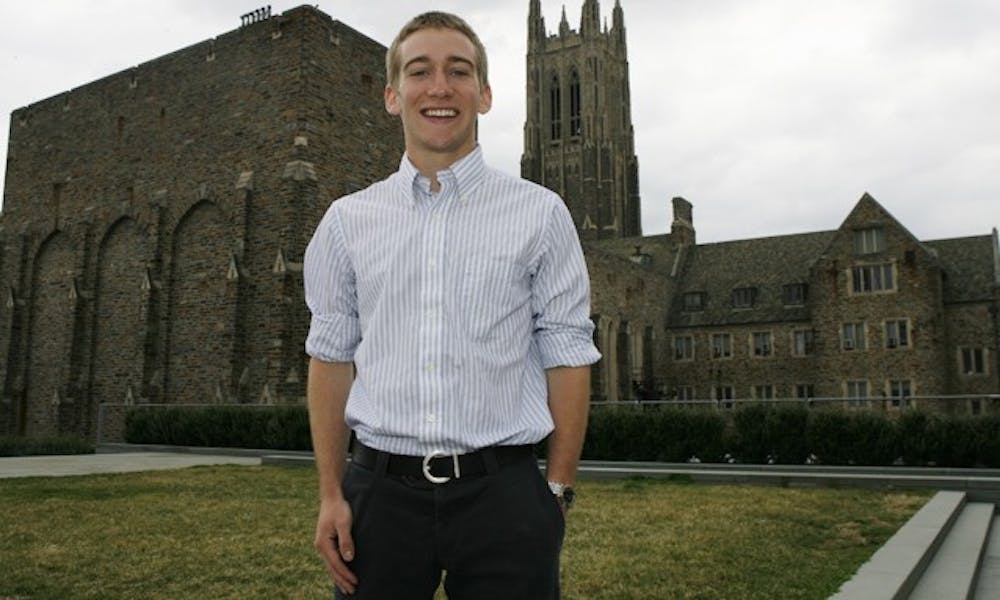Junior Mike Lefevre doesn’t look at the Duke Student Government presidential position as a stepping stone or an opportunity to pad his résumé.
It’s a chance, he explained, to represent the student voice.
“Put this on paper: I’m not interested in running for Young Trustee, I’m not going to do it,” Lefevre said. “This is it for me. I was a senator, I was vice president [for campus services], I’m chief of staff, and this is as far as I go... to become president and work for kids.”
In his second vie for the presidency, Lefevre stresses the importance of “getting everyone to the table”—both helping groups work with other organizations and facilitating conversations with the administration. Under Lefevre, DSG members wouldn’t go to the meetings of other groups to pitch their ideas, but instead to listen, the candidate said.
Samuel Veraldi, director of finance for campus services, witnessed Lefevre’s influence as a DSG representative when the University sought to find a way to minimize the Dining Services’ deficit. Veraldi noted that Lefevre’s tireless preparation and insistence to represent the student body directly affected dining policy.
The junior strongly opposed a proposal for “directed choice,” which would have forced students to spend a certain number of their food points at vendors run by the Bon Appétit Management Company, such as the Great Hall and The Marketplace.
“At any other school, they would have made that [decision] behind closed doors. Done,” Lefevre said. “You’d have a $200 dining fee or you’d have to eat all in the Great Hall—something like that, guaranteed. But at Duke... we’ve worked so hard to create these relationships and we’ve [shown] that we’re paying attention and that we’re not going to let things slide if they do something we don’t like.”
Lefevre is respected by the administration, Veraldi said, adding that Lefevre was a “major contributor” to the discussions.
“He knows the administration so well—that helps him out, too,” Veraldi said. “He’s worked with them so much. He has a good, balanced perspective.... I think that gives him considerable leverage.”
Inside the classroom, Lefevre has the same presence, said former Mi Gente co-president Luciano Romero, a junior. The two took a public policy class titled “Civic Participation and Community Leadership” during the Spring of their freshman year and have worked together periodically on campus initiatives.
Once Romero assumed his leadership role, he sought Lefevre’s advice on increasing the involvement of Mi Gente’s members and expanding the organization’s presence on campus. Lefevre encouraged Romero to work with other cultural groups—such as the Asian Students Association—to host collaborative events, Romero noted.
“I remember Mike as someone who was very assertive,” Romero said. “It’s hard not to be engaged by somebody like Mike. When I saw him speaking in the class, he would light up the room.... It was something that I admire of him.”
Get The Chronicle straight to your inbox
Signup for our weekly newsletter. Cancel at any time.

